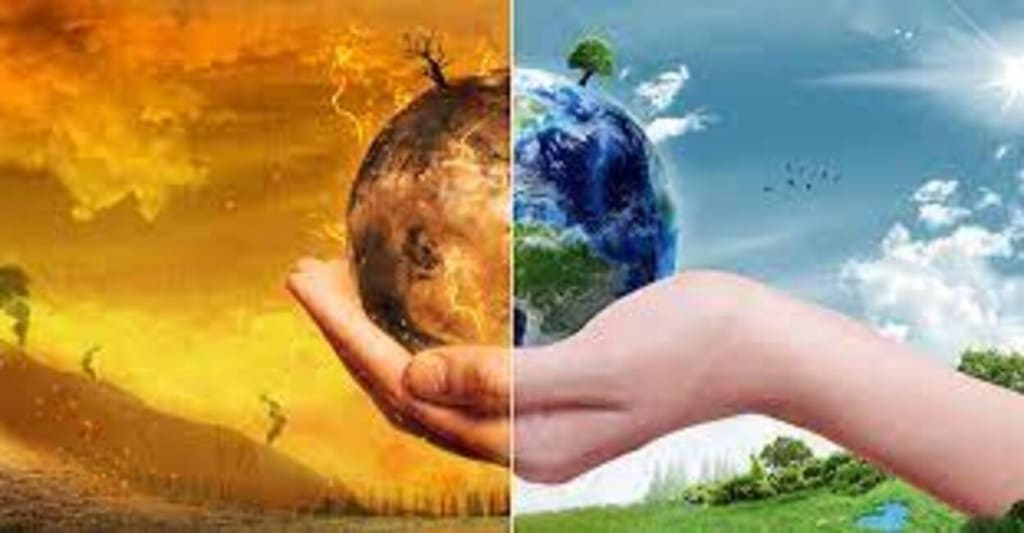
Climate change is one of the most pressing issues facing the world today. The effects of climate change are being felt around the globe, from rising sea levels to more frequent natural disasters. In this essay, we will explore the causes and consequences of climate change, as well as potential solutions to this global problem.
Climate change is primarily caused by human activity, particularly the burning of fossil fuels such as coal, oil, and gas. This releases carbon dioxide and other greenhouse gases into the atmosphere, which trap heat and cause the Earth's temperature to rise. Other human activities, such as deforestation and industrial agriculture, also contribute to climate change by releasing carbon dioxide and reducing the planet's ability to absorb it.
The consequences of climate change are far-reaching and severe. One of the most visible effects is rising sea levels, which are caused by melting ice caps and thermal expansion of the oceans. This can lead to coastal flooding and erosion, as well as the displacement of millions of people. Climate change also leads to more frequent and severe natural disasters, including hurricanes, droughts, and wildfires. These events can have devastating effects on communities and economies, leading to loss of life and property damage.
In addition to the environmental and social consequences of climate change, it also has economic impacts. The costs of responding to and recovering from natural disasters are significant, and the long-term effects of climate change on agriculture, infrastructure, and other industries can be devastating.
To address climate change, there are several potential solutions. One approach is to reduce greenhouse gas emissions by transitioning to renewable energy sources such as wind, solar, and geothermal power. This can be done through policies such as carbon pricing, which puts a price on carbon emissions and incentivizes companies and individuals to reduce their carbon footprint.
Another approach is to promote energy efficiency and conservation, such as improving building insulation and encouraging public transportation. This can also be done through policies such as tax incentives for energy-efficient appliances and vehicles.
In addition, efforts can be made to promote sustainable land use and agriculture practices, such as regenerative agriculture and reforestation. These practices can help sequester carbon dioxide from the atmosphere and reduce greenhouse gas emissions.
International cooperation is also critical in addressing climate change. The Paris Agreement, signed by 196 countries in 2015, aims to limit global warming to well below 2 degrees Celsius above pre-industrial levels and to pursue efforts to limit warming to 1.5 degrees Celsius. Countries have committed to setting national emissions reduction targets and reporting on their progress, as well as providing financial and technological support to developing countries.
The effects of climate change are not evenly distributed around the world. Developing countries, particularly those in low-lying areas or areas with weak infrastructure, are particularly vulnerable to the effects of climate change.
Climate change is not just a future problem - it is happening now. The frequency and intensity of natural disasters such as hurricanes, floods, and wildfires are already increasing, and sea levels are already rising. The impacts of climate change are often interconnected.
Conclusion :-
Climate change is one of the most urgent issues facing the world today, with far-reaching environmental, social, and economic consequences. Human activity, particularly the burning of fossil fuels, is the primary cause of climate change, but there are potential solutions that can mitigate its effects. By promoting renewable energy, energy efficiency, sustainable land use, and international cooperation, we can work towards a more sustainable and equitable future for all.
About the Creator
sri kanth
Blogging is not rocket science, it's about being yourself and putting what you have into it.






Comments
There are no comments for this story
Be the first to respond and start the conversation.